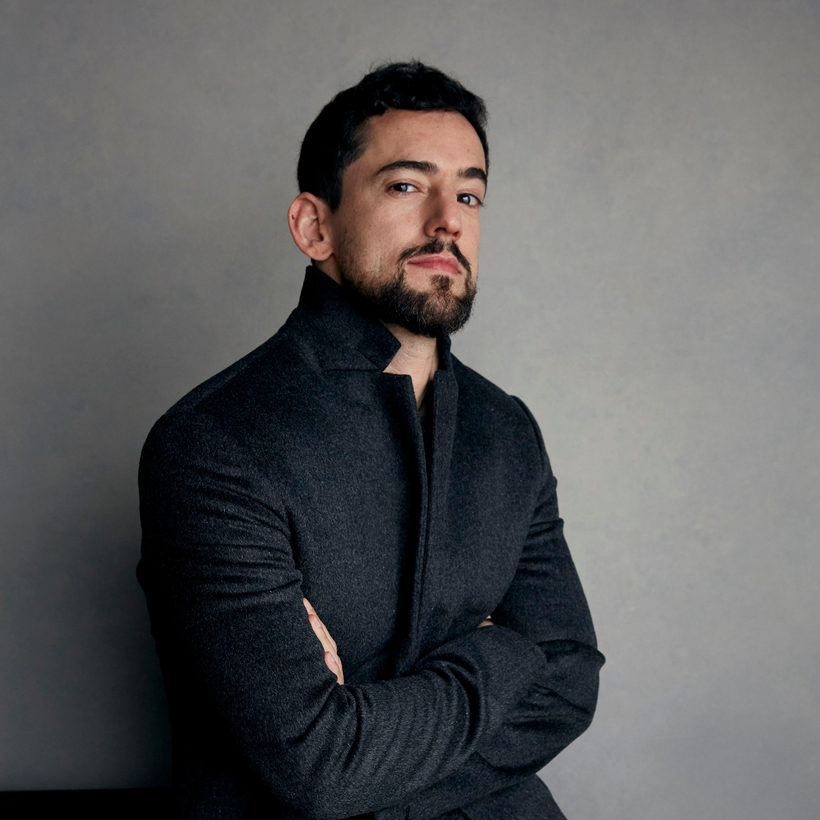For the Mexican actor and producer Luis Gerardo Mendez, making movies is about eliciting emotions. Mendez has starred in such hits as Nosotros los Nobles (2013), Mexico’s biggest-ever box-office hit at the time of its release, as well as Netflix’s first-ever Spanish-language TV show, Club de Cuervos. At 38, he’ll still visit theaters, he tells me, “disguised with a cap and a mustache, to hear people’s reactions.”
Mendez grew up in a family of doctors in Aguascalientes, a small city in central Mexico. To his parents’ horror, he decided when he was still a child that he was more interested in making short films and plays than in learning the family profession. With acting, he could express his tumultuous inner world, Mendez explains. At a theater workshop in high school, he worked on a play about a family getting a divorce. “My parents were thinking of divorce at the time,” he says. “As they watched, I had the sensation of touching them deeply.”
Mendez worked as a D.J. for two years, until he saved enough money to move to Mexico City. In the capital, after-school acting classes quickly led to roles in theater and film. Today, he is one of Mexico’s best-known actors.
Mendez will still visit theaters, “disguised with a cap and a mustache, to hear people’s reactions.”
Mendez landed in Hollywood last year, when he starred alongside Adam Sandler and Jennifer Aniston in Murder Mystery, and alongside Kristen Stewart, Naomi Scott, and Ella Balinska in Elizabeth Banks’s Charlie’s Angels remake. This weekend’s release of the comedy Half Brothers, starring Mendez opposite Connor Del Rio, also marks Mendez’s second stint as a producer. “As an actor, you are always telling someone else’s stories,” he says, “but when you start producing, you take control of your life and the themes that are relevant to you.”

In Half Brothers, Mendez plays Renato, a broken Mexican businessman traveling to the U.S. to see his dying father. The road trip sees Renato re-united with his half-brother. Cultural conflict and immigration taboos quickly emerge as themes for skewering. “We really wanted to talk about immigration problems with a sense of humor, because we haven’t seen that before,” Mendez says. “We are Mexicans, but we are also writers and painters and fathers and mothers.” The film is loosely autobiographical: Mendez has a half-sister he hadn’t spoken to before. He reached out to her a month before shooting began. “This film, in a way, made me closer to her,” he says.
Having made films on both sides of the border, Mendez laments the vast budget differences between filmmaking in Mexico and in the U.S., and hopes producers will become more willing to take risks on foreign projects in the future. “We have seen Mexican films can have the same impact as an English-speaking movie or TV show,” he says. He also hopes to see foreign films gain more of a presence on streaming platforms. “In Mexico, these two big TV networks used to control everything. With Netflix, you can do whatever you want. Everyone should be able to be honest and raw and dark.”
Elena Clavarino is an Associate Editor for AIR MAIL


